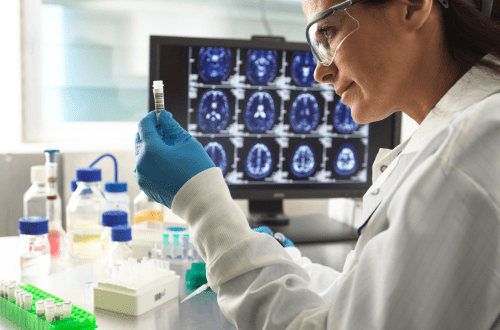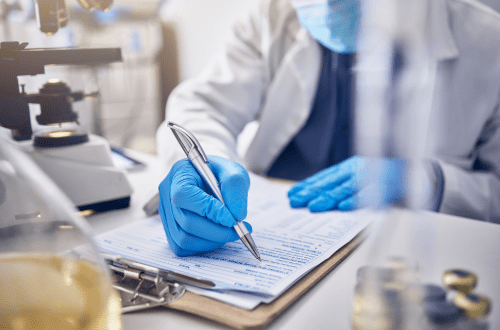The Benefits of Central Laboratory Services for Clinical Trials
With the number of clinical trials increasing worldwide in recent decades, there are thousands conducted that rely on central laboratory services every year to help ensure the accuracy and reliability of clinical trial results. Globally, the central lab market size is estimated to reach $US5.05 billion by 2030, growing at a compound annual growth rate (CAGR) of 6.44% from 2024 to 2030, according to a recent report by Grand View Research.
Central laboratory services are offered by third-party vendors like Labcorp or ACM Global Laboratories, known as central labs, which function to process laboratory samples collected from study participants. Unlike local labs, which are situated near individual clinical trial sites, central labs operate from a centralized location that receives and processes all samples obtained from several investigator sites in a study using standardized procedures and equipment. Sponsors and contract research organizations (CROs) now outsource nearly 80% of their central lab work to vendors that offer central laboratory services, demonstrating their essential role in the industry.
Read on as we explore the several key benefits of central laboratory services and how central labs are helping advance medical research in the clinical trials industry!
About Central Laboratory Services in Clinical Trials
A white paper by CBCC Global Research reports that many aspects of clinical trials depend heavily on the collection and analysis of clinical, immunological, and sometimes genetic biomarkers via central laboratory testing. Some examples include assessing eligibility criteria, safety monitoring, determining baseline values of health and biomarkers, as well as demonstrating the efficacy of the drug under investigation over time. Historically, these tests were carried out by local labs chosen by each individual investigative site, but this often resulted in data errors due to the use of different testing methodologies, reference ranges, and standard operating procedures (SOPs). Other issues like mislabeled lab kits, missing patient samples, and incorrect tests were also widespread, resulting in time-consuming data-cleaning processes that caused costly delays in clinical trials for sponsors.
The central laboratory services model, introduced in the 1980s, was introduced to address these common drawbacks of the local labs approach. Central labs were designed to ensure consistency across all sample collections at the clinical site level, from lab kits and equipment to analytical method platforms and SOPs. Under this model, sites are also provided standardized training on proper collection, packaging, and labeling requirements, which further reduces the risk of lost or mislabeled patient samples. Overall, central labs have become valuable players in the pharmaceutical industry because they consist of professional logistics teams who not only understand a sponsor’s laboratory needs for their clinical trials but are also familiar with regulatory requirements and standard Good Clinical Laboratory Practices (GCLP) guidelines.
Five Key Benefits Central Labs Offer Sponsors in Clinical Trials
Central laboratory services provided by central labs include a range of activities, including conducting essential safety and specialist testing, building specimen collection kits customized for each clinical trial’s unique protocol, providing pre-analytical services (e.g., registering receipt of samples at the central lab), and carefully managing specimens within a centralized sample biorepository. When sponsors and CROs of clinical trials choose to partner with central labs, these end-to-end integrated services and many more offer the following benefits to improve a study’s accuracy, validity, and efficiency!
1. Standardization and harmonization
Central labs are required to follow global testing standards in alignment with the Good Clinical Practices (GCP) and GCLP guidelines to ensure all tests are conducted uniformly. With consistent SOPs in place, central laboratory services enable sponsors to significantly reduce data variability and human error in specimen collection, leading to more accurate and reliable results across different sites and participating countries.
2. Quality assurance
Central labs are often accredited by internationally recognized bodies, such as the College of American Pathologists (CAP) and Clinical Laboratory Improvement Amendments (CLIA), which serve to foster excellence in laboratory science and to uphold certain standards for patient care and quality control. In the United States, CLIA certification is a federal requirement for central labs conducting diagnostic testing on human samples, with some areas requiring additional state-level certifications. As a result, certified central labs provide high-quality, reliable data that maintains the validity of clinical trials.
3. Efficient resource allocation
Similar to partnering with CROs, when sponsors outsource some or all of their central lab needs using central laboratory services, they can divert more valuable resources toward core research and development areas. This provides time and cost savings because central labs already come equipped with the necessary expertise, trained professionals, equipment, experience, and infrastructure for processing lab samples. As a result, sponsors can more efficiently utilize their resources and potentially streamline their clinical trial process.
4. Expertise and specialized testing
Although both local and central labs have skilled professionals who are experts in the field of laboratory testing and laboratory science, central labs additionally offer teams experienced with managing the sample analysis needs within clinical trials. They can often provide specialized testing methods, such as QuantiFERON tuberculosis (TB) Gold testing, that either cannot be done at the trial site or take longer to process when analyzed locally. The resulting efficiency and convenience of central labs further reduce data inconsistencies at the site level, while reducing the need for retaking samples from patients if testing errors occur.
5. Data management and logistics
Although specimen collection and processing make up a significant portion of central laboratory services carried out for clinical trials, these vendors are also powerhouses of data management and biospecimen collection logistics. Not only do central labs conduct robust standardized data analysis and reporting for the human samples they receive, most of them also take on the responsibility of arranging sample transportation and storage to ensure specimens remain stable for testing. With these capabilities and their access to the latest laboratory technology, central labs offer short turnaround times for large volumes of patient samples, which enable informed decisions about participants to be made more quickly.
Conclusion
In conclusion, central laboratory services offered by central labs are crucial for supporting clinical trials and upholding the integrity, reliability, and consistency of the data collected from patients. These labs offer several benefits for sponsors who choose to outsource to a central laboratory, including standardized testing procedures, quality assurance, efficient resource allocation, specialized testing services, and comprehensive data management. Ultimately, the central laboratory model functions to improve the overall execution and validity of clinical trials, while helping sponsors avoid costly specimen analysis errors and any resulting study timeline delays. Like CROs, central labs have established themselves as a key clinical research partner for sponsors, increasing the chances of a clinical trial’s success from human testing to market authorization.
About TFS HealthScience CRO
TFS HealthScience is a global CRO that supports biotechnology and pharmaceutical companies throughout their entire clinical development journey. In partnership with customers, we build solution-driven teams working for a healthier future. As a trusted CRO partner throughout the entire clinical development journey, we understand the importance of providing essential and diverse services to streamline clinical trials for our clients. Visit our website to learn more about the solutions TFS can offer for your next clinical trial, or connect with a TFS representative today!
Connect with Us
Contact us today to discover how TFS can be your strategic CRO partner in clinical development.



